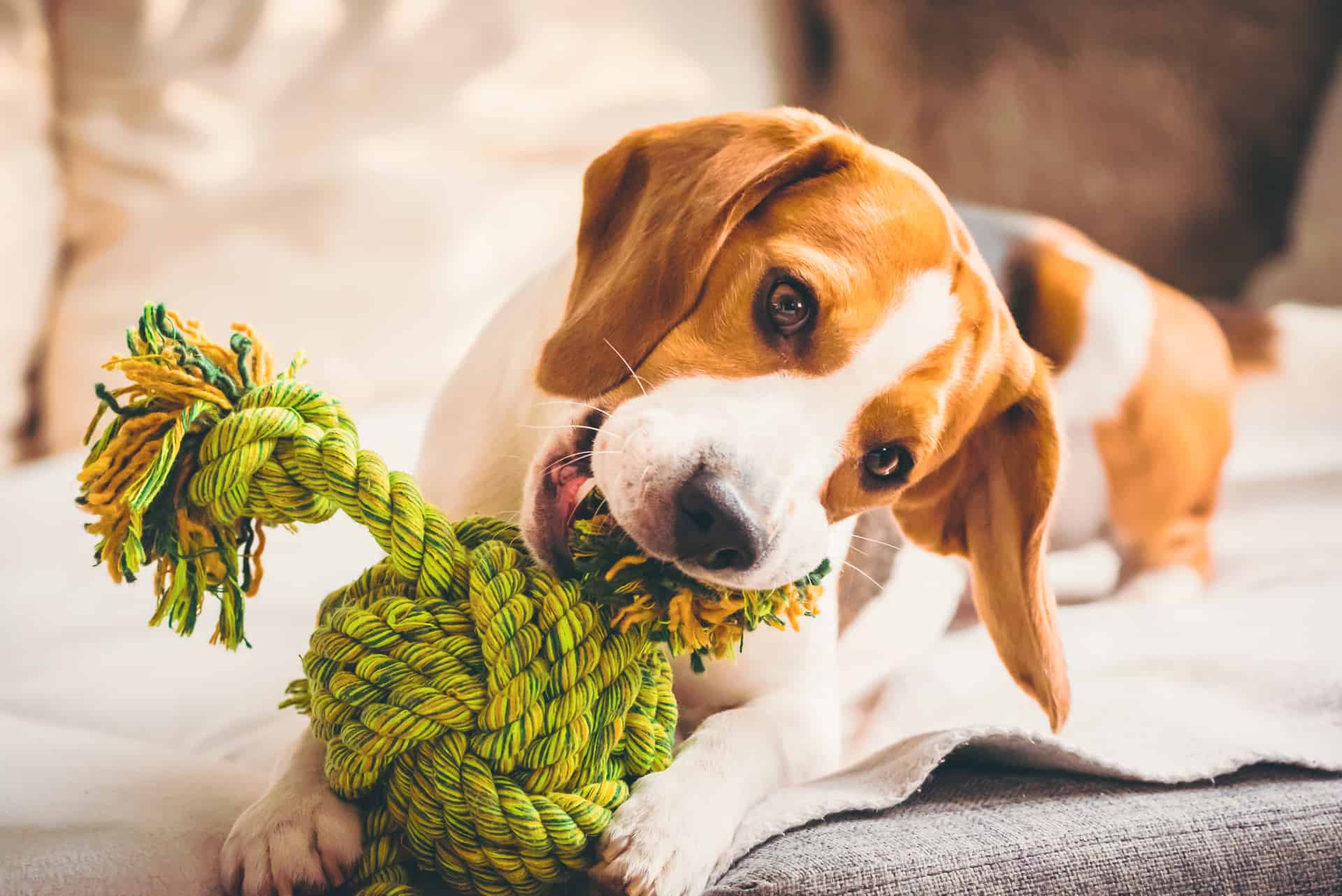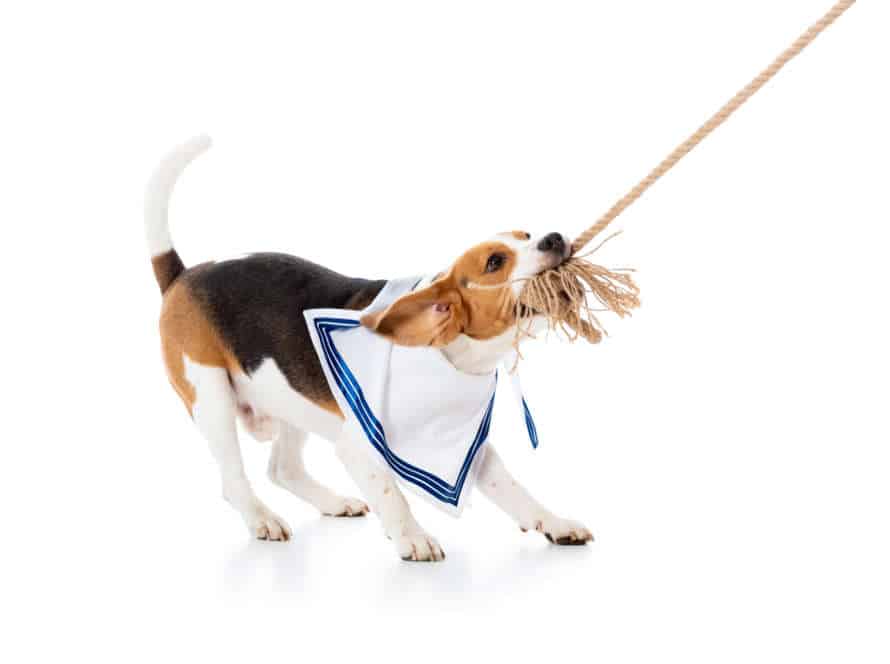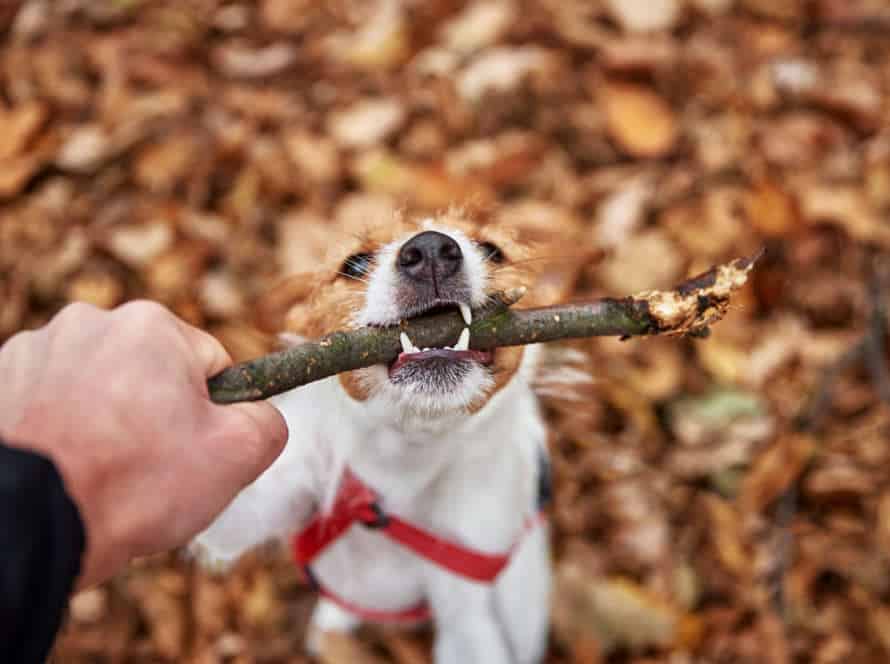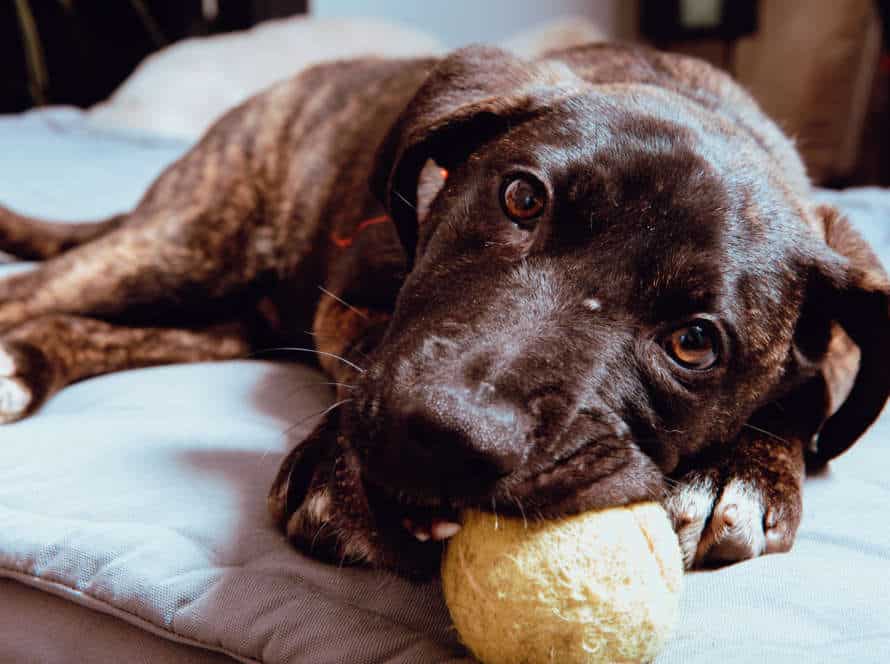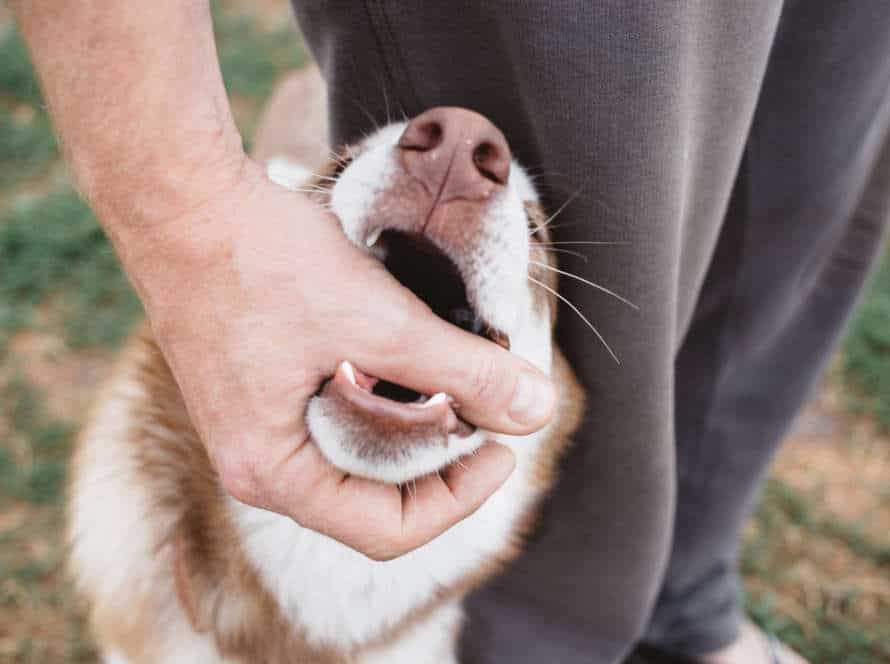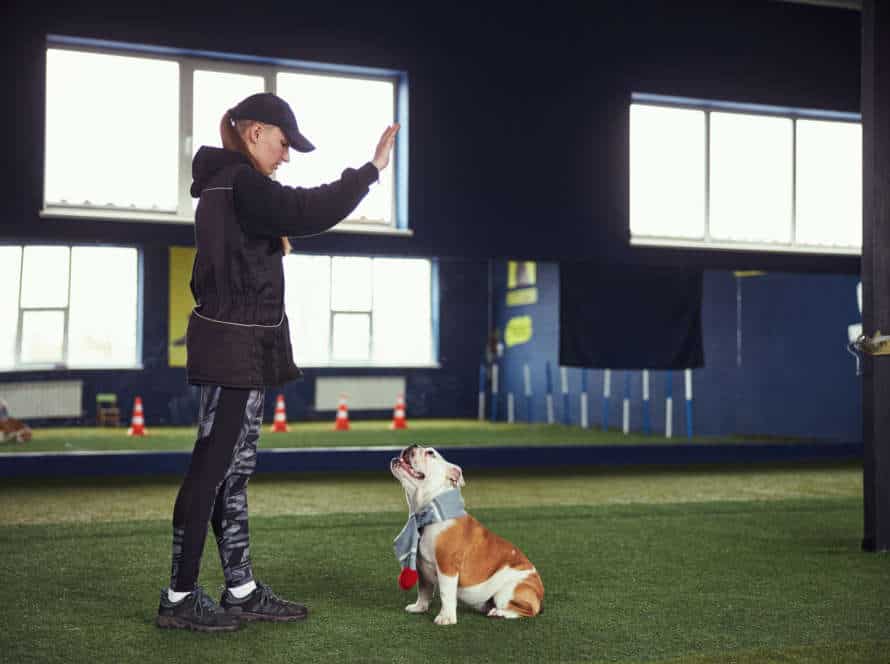Reasons for Puppy Biting
Puppies bite – it’s a fact. And it can be annoying and risky. So, why do they do it? And how do we stop it? We’ll look into that. Potential reasons and solutions ahead!
Teething and exploring environment
Puppies explore their world using their mouths. Teething is part of their growing-up process. Biting helps them to relieve teething pains and to learn about their environment. Here are some of the reasons why puppies bite:
- Teething: Puppies aged 3-6 months bite to reduce the teething discomfort.
- Play: They may not understand that biting humans isn’t the right way to play.
- Seeking Attention: Puppies can bite to get attention from their owners.
- Fear and Anxiety: If they haven’t been socialized properly, they may bite out of fear or anxiety.
- Hunger or Thirst: When they are hungry or thirsty, they may bite to get food.
It’s essential to give your puppy chew toys and to discourage biting people. Redirect their attention to the chew toys and reward good behaviour. If the biting continues, consult a professional dog trainer or behaviourist.
Playing and learning socialization skills
Playing is an important part of a puppy’s growth. It helps them to burn energy and learn how to socialize. But, puppies often bite when they play. It’s important to know why they do this.
Here are the reasons:
- Teething – Puppies, like babies, experience teething. Biting can help with the soreness in their gums.
- Exploring – Puppies use their mouths to understand the world around them. This includes toys, human hands and feet.
- Attention-seeking – Puppies learn that biting is a good way to get attention from their owners or other puppies.
- Playfulness – Biting is used to start playing and connecting with their owners and other animals.
- Fear and aggression – Biting can also be a sign of fear or aggression. If this is the case, you should consult a vet or animal behaviorist.
To help your puppy learn good social skills and reduce their biting, give them chew toys, use positive reinforcement to redirect their biting, and watch them when they play with people or other animals.
Fear and anxiety
Puppy biting is common. To address the root cause, understand why it happens. Fear and anxiety can be reasons. If a pup feels scared or threatened, for example in a new or strange situation, they may bite. Anxiety or stress due to separation, or even changes in their environment, could be another cause. Being social animals, pups crave attention and may bite to get a response. Frustration and boredom can also lead to biting, if they don’t have enough physical or mental stimulation. As a pet owner, observe your pup’s behavior. Give them appropriate support and training. Encourage positive interactions and manage their environment. This can reduce puppy biting due to fear and anxiety.
Methods to Stop Puppy Biting
Puppy biting is normal. They use it to investigate the world. But, it can be worrisome and even unsafe if not handled right. Fortunately, there are strategies to lessen or even stop puppy biting. Use them with patience and dependability to reach the goal. Let’s take a close look at some of these tactics.
Establishing proper bite inhibition through training
Puppy biting is common among young pooches. For proper bite inhibition and to prevent undesirable habits in adult dogs, it is crucial to train them. Knowing why they behave that way helps handle the situation better.
Here are some solutions to stop puppy biting and create proper bite inhibition:
- Direct their biting to a chew toy or bone.
- Supply treats and compliments when the pup resists from biting.
- Make a high-pitched sound like other pups during playtime.
- Never use physical punishment or aggressive techniques. This can lead to aggression in mature dogs.
If you stick to these training tactics, you can create proper bite inhibition in your pup and reduce undesired behavior as they grow.
Providing substitute toys and redirecting attention
Puppy biting is a thing. There are numerous reasons why pups bite. Knowing the why’s is the initial step to ending this behavior. These reasons include teething, checking out their environment, and playing.
For stopping puppy biting, there are techniques you can use:
- Provide chew toys or stuffed animals as substitutes for them to bite.
- Re-direct their attention when they begin biting.
- Positive reinforcement such as treats and praise are good for motivating better behavior and discouraging biting.
- No physical punishment or aggression should be used, as this can make the behavior worse and hurt your relationship.
With patience and dedication, you can teach your pup to stop biting and make good habits.
Pro tip: Don’t forget to socialize your puppy with other dogs and people in order to help them learn the proper behavior.
Consistency and positive reinforcement in training
Consistency and positive reinforcement are critical when teaching your pup not to bite or nip. Puppies bite and chew for various reasons, such as teething, playing, and seeking attention. As a pet parent, it’s your job to change this behavior. Here are some efficient techniques to stop your puppy from biting:
- When they try to bite or nip, quickly change their focus to an appropriate chew toy or treat.
- Utilize a consistent, firm tone to discourage biting and give rewards for good behavior.
- Don’t use physical punishment, as it can provoke fear and anxiety in your pup.
Through positive reinforcement, steady education, and redirection, you can instruct your puppy proper behavior and decrease biting and related activities. Remember, training takes time and patience, so remain resolute and honor your puppy for every good step.
Pro Tip: Socialize your puppy by giving them contact with other pets and persons to help them learn acceptable behavior.
Understanding Puppy Body Language
Grasping canine body language is vital for understanding why puppies bite. Puppies use body signals like growling and showing teeth to express displeasure, fear, or exhilaration. They may also use body language to express a wish to play or start an attack. Knowing how to read a puppy’s body language can help you know when your puppy is anxious or hostile and stop biting events.
Identifying signs of aggression and fear
Puppies use body language to express emotions. It’s important that pet owners understand their pup’s behavior. This includes signs like aggression and fear. This helps create a healthy home for the pup.
Signs of aggression might be fur standing up, teeth baring, growling, or lunging. Owners should approach calmly and not make sudden movements.
Fearful puppies may cower, have flattened ears, tuck their tail, and raise their paw. Give them a safe space like a crate or confined area to make them feel secure.
Knowing dog body language can help prevent bad behavior. Knowing why they might bite, such as fear, playfulness, or anxiety, will help owners take the right action. This keeps the pup safe and happy.
Learning to read and respond to signals effectively
It’s essential to recognize puppy body language. This helps in reacting suitably to their signals and tackling issues like biting. Here are some common signs to keep in mind:
- Raised hackles: When a puppy’s fur stands up on its back, it usually means they’re feeling scared or aggressive.
- Tail position: A pup’s tail is a great way to recognize its mood. A wagging & relaxed tail shows happiness & friendliness On the other hand, if it’s tucked or stiff, it’s likely that the pup is afraid or anxious.
- Yawning: Puppies yawn when they’re tired. But, it’s also a sign of anxiety or unease.
- Biting: Puppies may bite for play or to explore. It could also mean fear or discomfort.
By observing these cues carefully and responding accordingly, you can create a better bond with your pup. Pro tip: Get help from a professional trainer if you’re having difficulty with behavior problems.
Importance of socialization and exposure to different environments
Socialization and exposure are essential for puppies. They help them to comprehend the world, teach them how to act in various scenarios and prevent biting.
Why is it so significant?
- Socialization builds poise, teaches communication and helps them cope with fresh situations.
- It prevents behavior issues such as biting, stress due to separation and destructive behavior, caused by a lack of socialization and exposure.
- It makes puppies friendly and easier to integrate into families and communities.
Make socialization and exposure a priority when raising your puppy. Take them to new parks, introduce them to people and other dogs and give them different experiences as they grow. This will enable them to become an adult dog that’s content and obedient.
Potential Health Issues Related to Puppy Biting
Puppies biting can show there’s something else going on. It could be due to health problems. It’s important to be aware of possible medical issues that could lead to biting. Let’s explore some common ones.
Dental problems and need for regular check-ups
Regular dental check-ups are key for good oral health. They can also help prevent tooth decay and detect potential dental problems quickly. Here are a few of the most common dental issues that regular check-ups can help catch and stop:
- Tooth decay: Bacteria in the mouth make acid which damages the tooth enamel. Regular check-ups can find cavities and stop more harm to the tooth.
- Gum disease: Plaque builds up on teeth and gums, causing inflammation, bleeding, and infection. Routine check-ups and cleanings can prevent and treat gum disease.
- Oral cancer: Oral cancer is a type of cancer that affects the mouth and throat. Regular dental check-ups can detect the early signs of oral cancer, increasing the chances of successful treatment.
By scheduling regular dental check-ups, you can keep these dental problems from getting worse and maintain good oral health. Tip: See a dentist twice a year for routine check-ups and cleanings.
Nutritional deficiencies and behavioral issues
Nutritional deficiency can cause behavioral issues in puppies, like biting and chewing. Know the link between nutrition and puppy behavior. Protein, calcium and B-vitamins lack can trigger anxiety, aggression and other issues. Puppies may bite and chew to relieve their stress caused by nutritional deficiency. As a puppy owner, give a balanced and nutritional diet to avoid these behavioral issues. Moreover, offer behavioral training and ample chances for running and playing, to reduce biting and other unwanted behavior.
Indications of underlying medical conditions and need for veterinary care.
Puppy biting can be normal, but it can also show underlying health issues. These include dental issues, anxiety, and behaviour disorders.
Here are some signs that your pup’s biting needs veterinary care:
- Persistent, aggressive biting beyond teething
- Biting with other symptoms like vomiting, diarrhoea, or tiredness
- Biting that breaks or damages teeth
- Biting after being spayed or neutered
- Biting in older dogs not related to teething
If concerned, speak to a vet. They can assess your pup’s health and offer guidance on any medical conditions.
Frequently Asked Questions
Q: Why do puppies bite?
A: Puppies bite for a variety of reasons, but mainly because it’s a natural part of their development. They explore their world with their mouths, and biting helps them learn about texture, taste, and how hard they can bite without hurting themselves or others.
Q: Is it normal for puppies to bite their owners?
A: Yes, it’s normal for puppies to bite their owners, especially during playtime. However, it’s important to teach them that biting is not acceptable behavior and redirect their attention to something else.
Q: How can I stop my puppy from biting?
A: You can stop your puppy from biting by giving them appropriate chew toys, using positive reinforcement to reward good behavior, and teaching them commands like “no bite” or “gentle.”
Q: What should I do if my puppy bites too hard and hurts me?
A: If your puppy bites too hard and hurts you, you should yelp or say “ouch” loudly to startle them, then stop playing with them immediately. This will teach them that biting too hard is not acceptable and that playtime will stop if they continue to bite too hard.
Q: Does my puppy’s breed affect how much they bite?
A: Yes, some breeds tend to be more playful and bitey than others. For example, retrievers and terriers are known for having a lot of energy and using their mouths to explore their environment. However, all puppies bite, regardless of breed.
Q: When will my puppy stop biting?
A: Puppies typically stop biting as they get older and their adult teeth come in, usually around 6-8 months of age. However, it’s important to continue training them and encouraging good behavior throughout their lives.

